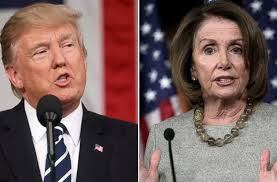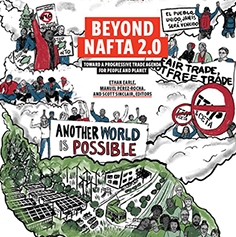Trump’s trade policy has proven to be a corporate trade agenda obscured by the chaos of improvisation and inconsistency. Last night, Trump said that he didn’t like the Trans-Pacific Partnership for the United States and that bilateral deals are better for workers. We don’t buy it because we have seen otherwise. The revisions to the US – South Korea trade deal, Trump’s first bilateral deal, did not change the deal to favor workers: the deal does not address the elimination of job outsourcing incentives, the Investor-State Dispute Settlement (ISDS) mechanism is left intact, and there are no added enforceable labor and environmental standards.
Currently, NAFTA is not turning out to create real protections for workers in the US either. The proposals on labor standards has been amongst the least public of the key issues to be discussed outside of Mexico’s minimum wage and rules-of-origins standards for the auto-industry, in which there has been no agreement thus far. Additionally, ISDS is still on the table as legislators and the corporate lobby have continued to aggressively push for this legalized form of threatening governments to not impose regulations on corporations, even if it means harming workers and our environment. An opt-in system could still mean unwarranted guarantees for multi-nationals in Canada and Mexico that could limit labor regulations in certain industries, harming the power of North American workers and lowering the bar across the continent.
In fact, a new Trump administration trade report re-affirmed the desire to maintain the ISDS in certain industries and cases so that US-based multi-national corporations are protected from common sense regulations. The report, for example, viewed Malaysia’s protections for maternal and infant health care as trade barriers because it would restrict corporate marketing practices.
We oppose the TPP because it is a deal that benefits corporations at the cost of people’s well-being and the protection of the environment. We will also oppose any other deal, multi-lateral or bilateral, that does the same. If the United States Trade Representative cannot replace current trade deals with deals that protect and benefit workers and the environment, the current administration will face mass opposition from people who are tired of the same model which has failed us for too long.
Trade for people and planet is a model of trade which would apply real protections for workers and the environment across the world to make the ‘race-to-the-bottom’ a thing of the past. If deals – multi-lateral or bilateral – push for enforceable labor standards that guarantee a living wage, equal pay for equal work, fight increasing inequality, access to form unions, have zero-tolerance for slavery, protect jobs from outsourcing incentives, then we will have trade that benefits US workers.

